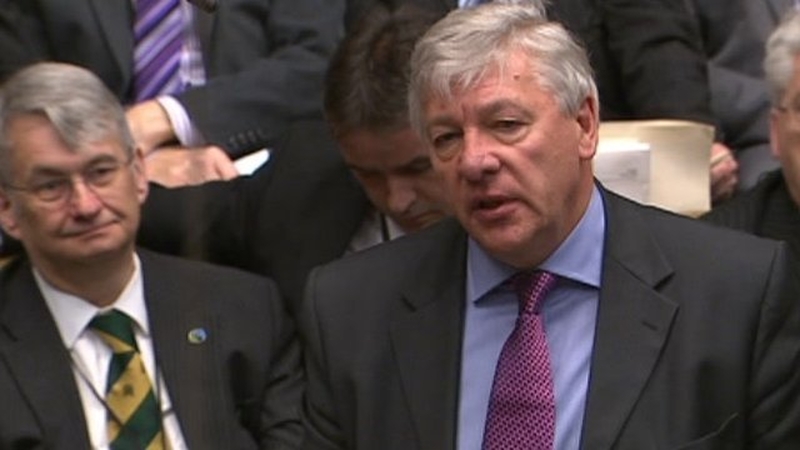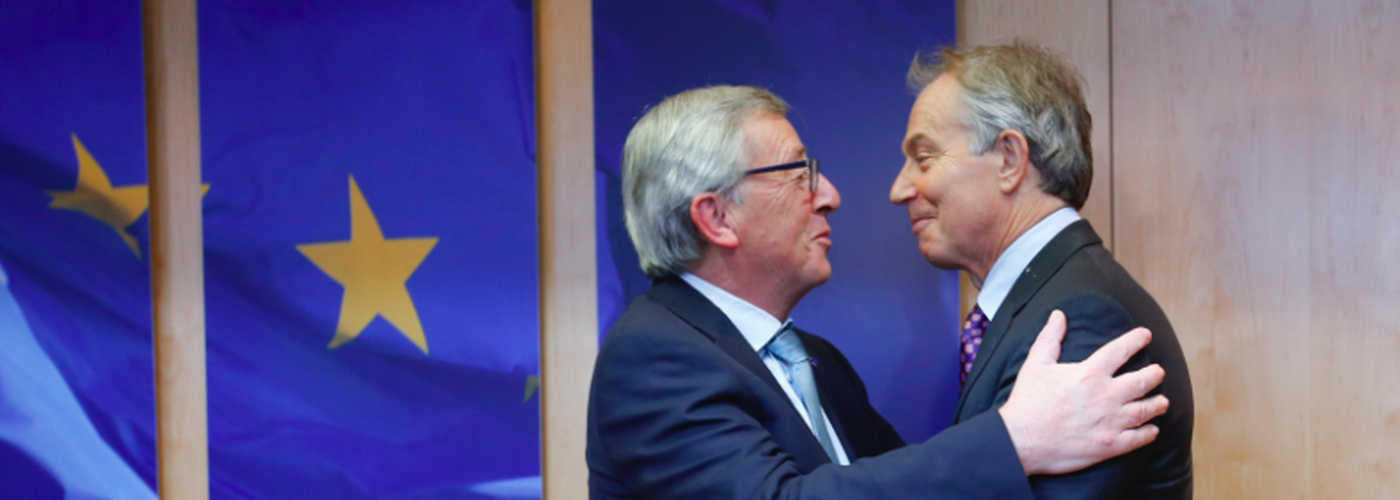Graham Stringer thinks the second referendum is a 'remainer fantasy'
I first met Tony Blair when we shared a platform in Manchester Town Hall about the future of the Labour Party after the devastating 1992 Election defeat.
He was Shadow Home Secretary and gave a spellbindingly optimistic speech marrying practical political objectives with a core of Labour philosophy.
It was blindingly obvious that these devastating skills of communication would make him Labour’s next Leader.
Ten years later I sat in the Commons Chamber and listened to the best delivered speech I have ever heard (I must have spent months of my life listening to political speeches), when he persuaded MPs to support the invasion of Iraq. But here lies the rub, his judgment was wrong and he had to rely on Conservative MPs for his majority. I was one of 139 Labour MPs who voted against our involvement in this unjustifiable war.
The gods blessed Blair with an unsurpassed ability to communicate and cursed him with wretched judgment. He was not only wrong on Iraq, he was wrong on Afghanistan, the Euro (he claimed not joining would ruin the UK economy) as well as believing that public services are better delivered by business in pursuit of profit. This is why our bus and rail systems are in such a mess.
Blair now has no credibility; Jeremy Vine, the excellent Radio 2 presenter, has said that the one thing that unites his audience is that none of them want to listen to Blair.

As somebody who believes that the referendum decision to leave the EU should be honoured, I am delighted that such a flawed politician should try and put himself in the vanguard of the campaign to thwart Brexit. It is wonderfully symbolic that his strongest supporters (like Andrew Adonis) are unelected members of the House of Lords.
The document with which he has initiated his campaign continues the unedifying discussion around Brexit, where slogans masquerade as facts and clichés as arguments. To take just one example, the document points out that the Organisation for Economic Cooperation and Development (OECD) and the Office for Budget Responsibility (OBR) have downgraded their projections for economic growth and upgraded the cost of leaving the EU, without pointing out that their projections for growth for 2017 underestimated the UKs growth by 22% and 25% respectively.
The only experts on the future are bookies and astronomers, certainly not flawed politicians and economists with agendas.
'Labour should focus on creating a fairer more cohesive democratic country, rather than playing footsie with people whose democratic principles are barely skin deep'
However, there is one point that the steadfast ‘remainers’ make that is unarguably true: that in a ‘democracy people are entitled to change their mind’. Of course, this has never applied to the EU where once decisions have been made and placed in treaties they are to all intents and purposes immutable.
The strongest case for leaving the EU was the democratic one. We should have the right to make and change our own laws and law makers. We should therefore look in principle at what it would be necessary to do if the electorate had a change of heart on Brexit.
The law enabling the referendum was enacted by Parliament after the Conservatives won the 2015 election with this promise. The Labour Party voted for it.
All Labour and Conservative MPs were elected in 2017 on manifestos promising to implement the referendum. Therefore, to keep any sort of trust with the voters, a party would have to stand at the next general election promising a second referendum; and win.
The Conservatives will not do this and if the Labour Party was silly enough to change its position it would likely lose the election, having shed what is left of its working class support. The Lib Dems tried it and received a derisory vote. What Blair and a number of unelected members of the House of Lords are really attempting is a political coup against the electorate.

The EU was created by an elite - after the Second World War - who did not trust democracy having suffered invasion, fascism and communism. They believed in rule by philosopher kings - i.e., themselves. It is not surprising that our own EU-supporting elite, with their overbearing sense of entitlement, like this theory and cannot accept the will of the electorate
The second referendum is a ‘remainer’ fantasy. Does anybody seriously expect that the naturally cussed British electorate would take kindly to being told to vote again until they got the right result – not a chance.
As Labour’s spokesperson Hillary Benn said in the House of Commons debate on the referendum: "My view is that the question is perfectly clear and very simple. I do not think that anyone who goes into the polling station on the day, whenever it is, will not understand the consequence of voting either way."
He was right then and, with his recalcitrant colleagues, is wrong now and showing contempt for ordinary people.
Labour should focus on creating a clear vision of the United Kingdom as a fairer more cohesive democratic country for the future, rather than playing footsie with people whose democratic principles are barely skin deep.
Graham Stringer:
Graham Stringer is a regular columnist for Manchester Confidential. He is the Labour Member of Parliament for Blackley and Broughton with a majority of 28,258 after the 2017 election, up from 12,303 in 2010.
He was elected to Parliament in 1997 for the now abolished constituency of Manchester Blackley. Prior to this he was the Leader of Manchester City Council from 1984-1996. He is one of the few MPs to have scientific experience, as a professional analytical chemist. He is a member of The Science and Technology Committee at Westminster.
Other articles:
















